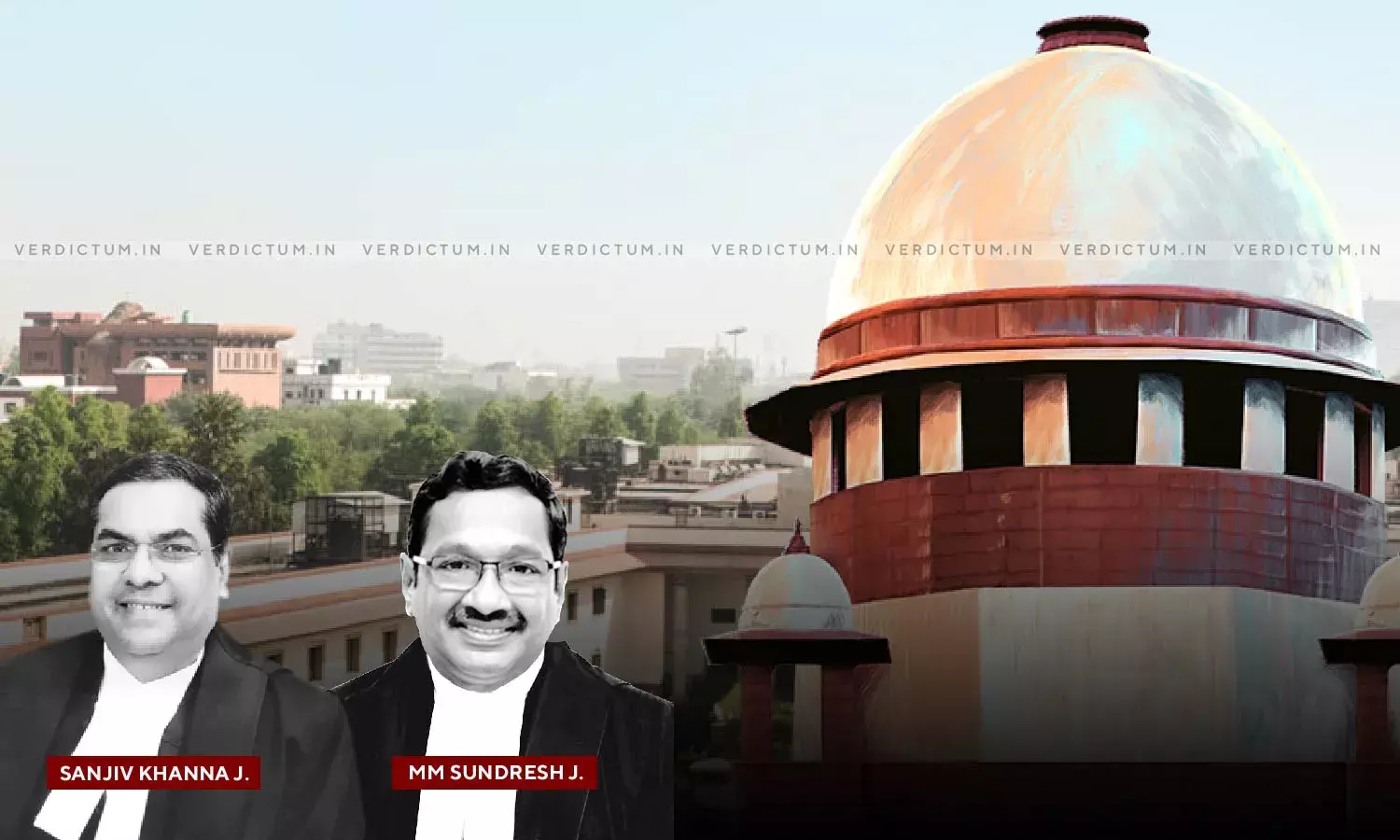Decisions Based On Equity Must Not Be Overturned Under Section 34 Of A&C Act On Ground That Arbitrator’s Approach Was Arbitrary: SC

The Supreme Court has noted that at times, decisions are taken acting on equity and such decisions should not be overturned under Section 34 of the Arbitration and Conciliation Act, 1996 (A&C Act) on the ground that the arbitrator’s approach was arbitrary or capricious.
The Court was deciding a civil appeal filed by Batliboi Environmental Engineers Limited (BEEL) challenging the judgment of the Bombay High Court whereby it allowed the appeal filed by Hindustan Petroleum Corporation Limited (HPCL) under Section 37 of the A&C Act and thereby set aside the arbitral award.
The two-Judge Bench comprising Justice Sanjiv Khanna and Justice M.M. Sundresh said, “An award based on little evidence or no evidence, which does not measure up in quality to a trained legal mind would not be held to be invalid on this score. Every arbitrator need not necessarily be a person trained in law as a Judge. At times, decisions are taken acting on equity and such decisions can be just and fair should not be overturned under Section 34 of the A&C Act on the ground that the arbitrator’s approach was arbitrary or capricious.”
The Bench further said that an award is against justice when it shocks the conscience of the court, as in an example where the claimant has restricted his claim but the arbitral tribunal has awarded a higher amount without any reasonable ground of justification.
Advocate E.C. Agrawala represented the appellant while Advocate Sanjay Kapur represented the respondents.
Brief Facts -
On acceptance of tender and in terms of the letter of intent, HPCL had awarded to BEEL the turnkey contract for detailed engineering including civil and structural design, supply, and erection, testing and commissioning of 23 MLD capacity Sewage Water Reclamation Plant in Mahul Refinery area. The contract value was Rs. 574.35 lakhs and the period was of 18 months, and accordingly the work was to be completed by August 28, 1993. There was delay in completion and on written requests made by BEEL, the time for completion was extended on two occasions. BEEL carried on the work till 1996 and thereafter, it abandoned the work. Hence, 80% of the work was complete and BEEL made a formal claim to HPCL for breach of contract on account of delay in execution, causing extra expenses and losses.
By the letter, BEEL sought an advance payment and simultaneously expressed its desire to resolve the dispute through conciliation. It also invoked the arbitration clause in the contract, if the proposal as given by it was unacceptable to HPCL; however, HPCL refused to make payment, and relying on the terms of the contract had impressed upon BEEL to resume and complete the remaining work, even if the matter was to proceed for arbitration. BEEL did not agree and resume work. A Sole Arbitrator was appointed and the arbitral award substantially allowed the claims of BEEL and dismissed the counter claim of HPCL for liquidated damages of Rs. 57.40 lakhs, on the ground that the delay was caused by omissions and commissions of HPCL. However, the High Court set aside such an arbitral award aggrieved by which, BEEL filed an appeal.
The Supreme Court in view of the above facts observed, “Referring to the third ground of public policy, justice or morality, it is observed that these are two different concepts. … Morality would necessarily cover agreements that are illegal and also those which cannot be enforced given the prevailing mores of the day. Here again interference would be only if something shocks the court’s conscience.”
The Court said that the arbitrator has the right to construe and interpret the terms of the contract in a reasonable manner and such interpretation should not be a ground to set aside the award, as the construction of the terms of the contract is finally for the arbitrator to decide.
“The award can be only set aside under this sub-head if the arbitrator construes the award in a way that no fair-minded or reasonable person would do. … the award has been rightly held to be unsustainable and set aside by the division bench of the High Court exercising power and jurisdiction under Section 37 read with Section 34 of the A & C Act”, added the Court.
Accordingly, the Apex Court dismissed the appeal and upheld the judgment of the High Court.
Cause Title- Batliboi Environmental Engineers Limited v. Hindustan Petroleum Corporation and Another (Neutral Citation: 2023INSC850)


